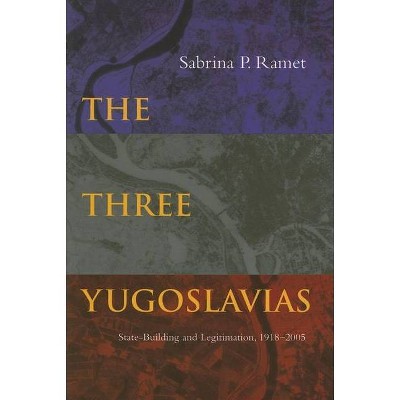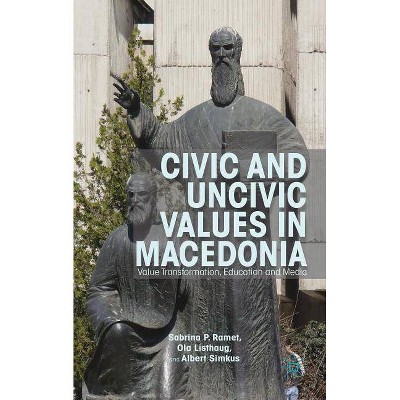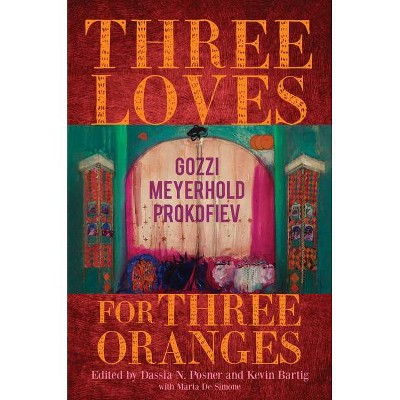The Three Yugoslavias - Annotated by Sabrina P Ramet (Hardcover)

Similar Products
Products of same category from the store
AllProduct info
<p/><br></br><p><b> About the Book </b></p></br></br>Based on extensive archival research and fieldwork and the culmination of more than two decades of study, The Three Yugoslavias is a major contribution to an understanding of Yugoslavia and its successor states.<p/><br></br><p><b> Book Synopsis </b></p></br></br><p>Yugoslavia exploded onto the front pages of world newspapers in the early 1990s. The War of Yugoslav Succession of 1991-1995 convinced many that interethnic violence was endemic to politics in Yugoslavia and that the Yugoslav meltdown had occurred because of ancient hatreds. In this thematic history of Yugoslavia in the 20th century, Sabrina P. Ramet demonstrates that, on the contrary, the instability of the three 20th-century Yugoslav states--the interwar kingdom (1918-41), socialist Yugoslavia (1945-91), and the rump Yugoslav state created in 1992, consisting of Serbia and Montenegro--can be attributed to the failure of succeeding governments to establish the rule of law and political legitimacy. Ramet places emphasis on the failure of the state-building project and the absence of political legitimation, rather than on ineluctable or abstract historical forces. Based on extensive archival research and fieldwork and the culmination of more than two decades of study, <i>The Three Yugoslavias</i> is a major contribution to an understanding of Yugoslavia and its successor states.</p><p/><br></br><p><b> Review Quotes </b></p></br></br><br><p>. . . a must read posing big questions. . .</p>-- "Choice"<br><br><p>. . . This is a rich and powerful book . . . . The product of twenty years of detailed research and contemplation, Ramet's latest work takes a rightful place on the short list of essential reading about the Yugoslavias.</p>-- "Journal of Modern History"<br><br><p>Ramet (Norwegian Univ. of Science and Technology) is a distinguished leading scholar on Yugoslavia who has made important contributions to the substantial literature on that unhappy land. This first-rate volume is a substantially enlarged, rewritten edition of Nationalism and Federalism in Yugoslavia, 1962, 1991 (CH, Feb'93, 30--3476). It is a must read posing big questions, e.g., why Yugoslavs have repeatedly failed to create an effective legitimate state structure and rule of law. Ramet rejects the myth, unfortunately widespread in the West, that the driving force has been ethnic conflict and ancient hatreds. Her work complements the study by V. P. Gagnon Jr., The Myth of Ethnic War: Serbia and Croatia in the 1990s (CH, Sep'05, 43--0597), by focusing on elite behavior. While she looks at prior state--building efforts (1918--29), she concentrates chiefly on Tito's Yugoslavia. Nearly half of this thick volume covers the post, 1989 period through KFOR and Kosovo. The inclusion of 150 pages of notes and more than 25 pages of bibliography underscore the deep research of this work, which concludes with a short chapter on the separate paths of Slovenia, Macedonia, and Croatia. Ramet throws much light on three Yugoslavias and also helps readers think about similar events elsewhere. Summing Up: Highly recommended. Lower--division undergraduates through faculty.--H. Steck, SUNY College at Cortland</p>-- "Choice"<br><p/><br></br><p><b> About the Author </b></p></br></br><p>Sabrina P. Ramet is Professor of Political Science at the Norwegian University of Science and Technology in Trondheim, Norway, and Senior Associate of the Centre for the Study of Civil War of the Peace Research Institute in Oslo (PRIO). She is the author of eight previous books, including Nationalism and Federalism in Yugoslavia (IUP, 1992).</p>
Price History
Cheapest price in the interval: 65.99 on November 8, 2021
Most expensive price in the interval: 65.99 on December 20, 2021
Price Archive shows prices from various stores, lets you see history and find the cheapest. There is no actual sale on the website. For all support, inquiry and suggestion messagescommunication@pricearchive.us




















